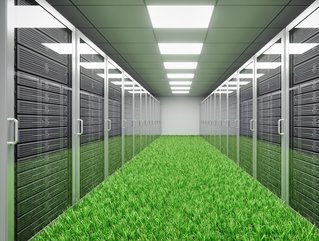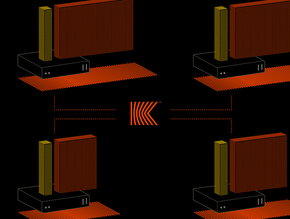Promoting sustainable development with data centre cooling

The health of the planet is of significant global importance. Industries across the world are making sustainability a top priority as concerns around climate change continue to grow.
Historically, the data centre industry has been quite damaging with its power-hungry facilities using enormous amounts of environmental resources, and in some cases, this industry is consuming more than entire countries.
Data centres account for 1% of the world’s electricity consumption and 0.5% of CO2 emissions.
As the data centre industry grows, technologists and developers need to look for more sustainable ways to run these data centres. And, as a result, the cooling of these data centres needs to become climate-friendly, particularly as cooling accounts for as much as 30 to 50% of total energy consumption.
To soundly fight against the impact of data centres on climate change, technology companies across the world must work together to reduce energy consumption within the industry.
In the digitally driven world we live in, it is imperative that data centre providers ensure their centres run smoothly to avoid any major disruptions. If a data centre overheats it can have a knock-on effect on customers, and computers that constantly overheat will fail before they reach their expected end of life.
Traditional cooling strategies used chillers to cool the ambient air within a data centre, while the addition of fans or InRow air cooling provided additional cooling to the racks.
For more efficient operation, data centre operators should consider variable-speed fans that can run at reduced speeds to match a lower cooling load. Pair this with strategic use of containment, this can create ‘hot’ and ‘cold’ aisles that streamline the thermal profile and ensure efficient cooling.
Facility location can also have a huge impact on sustainable cooling. The natural climate of a facility can lead to further efficiencies as there could be the option of free cooling where cold air coming from outside the data centre can be used to cool the interior so that chillers can be temporarily switched off or run down.
The Verne Global data centre in Iceland, which runs on 100% renewable power, does exactly this and has year-round free cooling due to the cold location it is in.
Additionally, modern operating conditions are causing data centre operators to consider new variants of liquid cooling, this paired with increasing power densities and concerns for the environment, the operating cost savings of liquid cooling can offset the capital costs that are required to prepare a data centre for its deployment.
The need for operators to switch to sustainable cooling methods is no longer a question of ‘if’ it will get done, rather it is ‘when’ it will be achieved. The demand for digital services is only increasing as is the need for sustainability.
It is now paramount that data centres prepare for resiliency and net-zero carbon emissions, and any improvements to cooling can add a large amount of savings in terms of energy usage, cost and carbon emissions.






